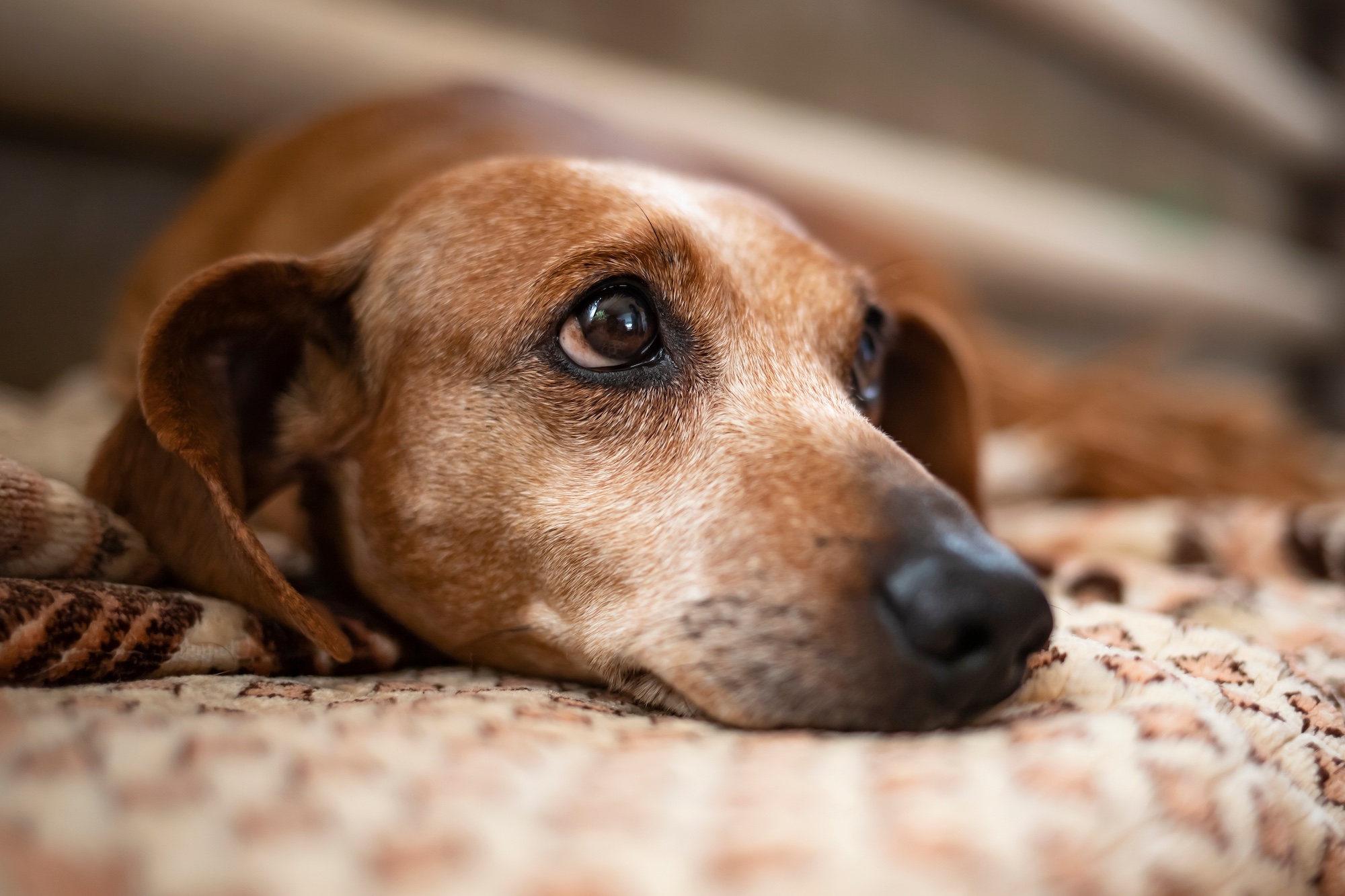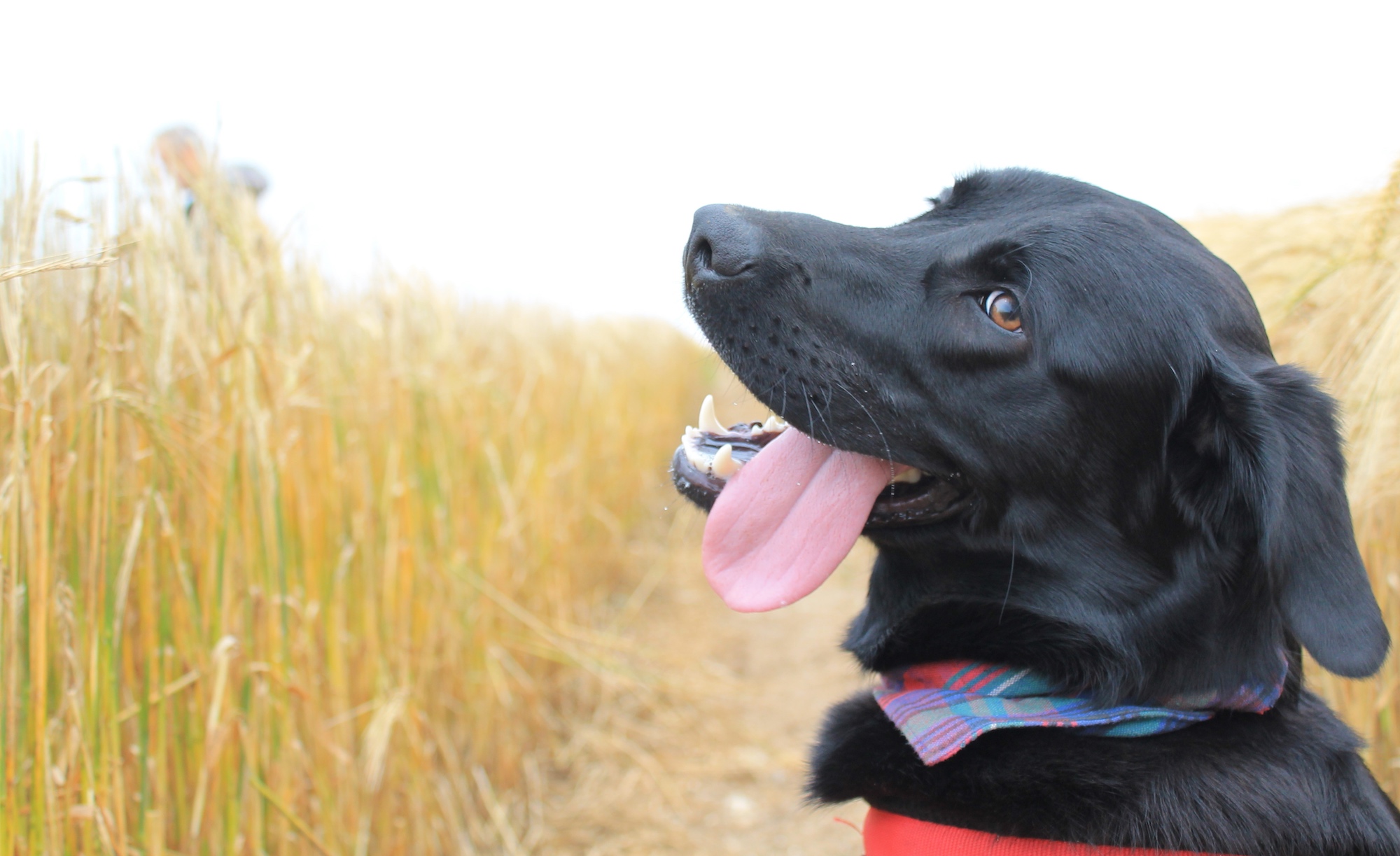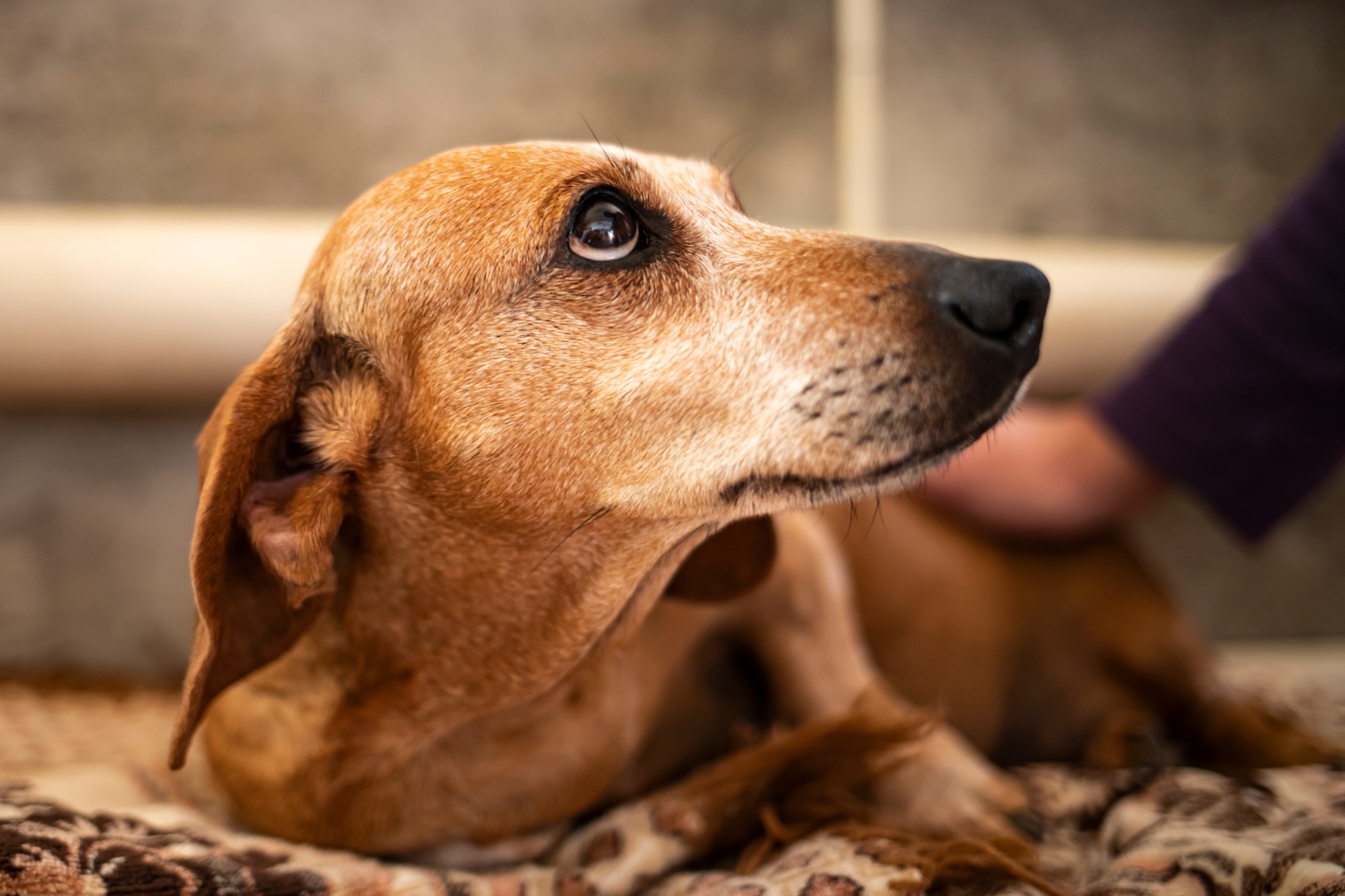Potty habits are a key indicator of health in pets, and they’re particularly easy to monitor in dogs—after all, you have to take your canine companion outside to do their business. But how often should your senior dog pee, and what might cause one dog to pee more often than another?
The more water your dog drinks, the more often they’ll need to pee. It’s a predictable correlation. That said, numerous factors—like diet, exercise, and climate—can affect your dog’s hydration needs throughout their life.
You may be surprised to learn that your dog’s age plays a role as well. Once they’ve grown to their full size, adult dogs may drink less than they did in puppyhood. Drinking less water means an older dog won’t need to pee as often as a puppy, but it’s important to understand what’s normal for an older dog so you can talk to your vet if something changes.
Here’s what you need to know about healthy urination habits in older dogs, including what to do if your dog starts peeing more or less often than normal.
How many times should my senior dog pee each day?
Every dog is different, and how often a senior dog needs to pee may depend on the amount of water they drink, their breed size, and their health status.
The average adult dog needs to pee three to five times per day. Puppies may need to pee more frequently because they have a limited ability to hold their bladder, and the same may be true for some older dogs. Puppies also tend to drink more water than adult dogs because they’re typically more active and their bodies are still growing.
On average, most adult dogs drink about one ounce of water per pound of body weight. For example, a 15-pound Boston terrier might only drink 15 ounces of water per day—while a 65-pound boxer might drink more than four times as much. But water consumption isn’t the only factor that determines how often a dog needs to pee.
Because the Boston terrier has a much smaller bladder, they might need to pee more often than the boxer. Certain medications or health conditions could also affect your dog’s urination habits.
Veterinarians recommend focusing on the length of time between bathroom breaks. Puppies may need to go out every hour, while many adult dogs can hold their bladders for six to eight hours—sometimes more. (Note that while some dogs can hold their bladder this long, ideally they shouldn’t have to—try to take them out more frequently to prevent any discomfort).
But what about senior dogs?
It depends. Some dogs can hold their bladders just as well in their senior years as they could in the prime of their youth. That said, it’s a good idea to let your senior dog out every four to six hours, just in case. (If they’re healthy, any dog can benefit from more trips outside!)
What causes changes in potty habits?
If your older dog is potty trained, but starts peeing inside, don’t assume that they have forgotten their training—they might simply not be able to hold their bladder as long as they once could.
However, sometimes accidents in the house can be one sign of cognitive dysfunction syndrome, a type of dementia in dogs. If you feel that your dog may be facing this issue, get them to a vet ASAP—treatment can slow its progression and improve their quality of life.
Senior dogs are also prone to numerous conditions that might increase their hydration needs or cause them to pee more frequently.
It’s common for dogs to become overweight as they age, for example, and obese dogs may need to urinate more often than dogs in a healthy weight range. One way to help keep your dog in an ideal body condition—the benefits of which include a longer average lifespan—is to switch them to complete and balanced fresh food, which comes pre-portioned to each dog’s individual calorie needs.
Dogs taking medication for health conditions like diabetes may also need to pee more frequently.
Another fairly common potty problem, especially in older dogs, is a type of urinary incontinence whereby the dog will leak urine unexpectedly (for example, they may leak while sleeping, and you might notice a wet spot on the bed when they rise in the morning). Speak to your vet if you notice this, as the condition can be treated with a medication to help regain bladder control.
Be sure to speak to your vet if you notice changes in the frequency or nature of your dog’s potty breaks. And remember to exercise patience. Even humans who anticipate a learning curve when housetraining a puppy may become frustrated if an older dog starts having accidents in the house. However, punishment will upset your dog, and do nothing to prevent future accidents. In fact, a dog who’s been punished for an accident may start going to the bathroom in secret to avoid your wrath.
Is my senior dog peeing too much?
Some dogs pee more often than others, but an increase in your dog’s frequency of urination
can be a sign that something is wrong. The key is to ask yourself whether this urinary frequency is typical for your dog, and whether you’ve noticed any other changes in their behavior.
Frequent urination may be cause for concern when combined with the following signs:
- Excessive thirst
- Blood in the urine
- Straining or crying while urinating
- Urine with an unusual smell
If your senior dog suddenly starts having accidents in the house, consult your veterinarian. Be prepared to answer questions about your dog’s typical bathroom habits and any recent changes in their behavior. It’s also important to assess whether your dog is actually producing more urine than usual or if they’re simply trying to pee more often but not succeeding.
Oliguria is a decrease in the volume of urine produced and is often related to a decline in renal function. Dogs with oliguria may make frequent but ineffective attempts to urinate. Signs that may accompany insufficient urine production could include:
- Dehydration
- Loss of appetite
- Lethargy
- Weight loss
- Vomiting
- Shock
Diabetes can increase a dog’s thirst, causing them to drink more water and thus produce more urine. A condition like kidney stones or a urinary tract infection (UTI) may not impact your dog’s urine production, but might make it uncomfortable or painful to pass large volumes of urine. In those cases, your dog might pee more often—but in smaller volumes each time.
What might cause an older dog to pee less often?
A sudden increase in urination is cause for concern, but peeing less often can also be a sign that something is wrong. When your dog starts urinating less frequently, it’s important to determine whether your dog is drinking less and thus producing less urine or if an underlying condition is making it difficult or uncomfortable for them to urinate.
Reduced thirst could be related to a change in diet or medications, while painful urination is commonly linked to urinary health problems.
Urinary tract infections, bladder or kidney stones, and urinary blockages could make it painful or difficult for your dog to pee. Older intact male dogs are also prone to a condition called prostate hyperplasia which makes it hard to pass urine. In rare cases, infrequent urination could be linked to abdominal trauma, neurological disease, or tumors.
If your older dog starts peeing less often than usual, talk to your veterinarian—they’ll likely want to assess your dog’s kidney function. Dogs may also drink less water if a health problem is making them feel nauseated.
How can I help my senior dog if I notice changes in their peeing habits?
Here are some ways to help a senior dog whose urinary habits have changed:
- Take your dog out right after they wake up in the morning and before bed at night. It’s also a good idea to offer a bathroom break after naps and meals
- If you’ll be away from home for more than five or six hours at a time, hire a dog walker or enlist the help of a friend to give your senior dog a bathroom break. This is best for any dog; they also get bored when they’re alone too long.
- Make sure fresh, clean water is always available. If your dog is reluctant to drink, try incorporating more moisture into their diet. Fresh food may help.
- Provide safe and easy access to a place where your dog can comfortably relieve themselves. If possible, avoid making your senior dog go down too many stairs to go potty
- If incontinence becomes an issue for your senior dog, and pain or mobility are limiting factors, you may want to consider dog diapers or pee pads. These are no one’s first choice—but, used judiciously, they can help make some dogs’ lives easier.
- Speak to your veterinarian about any changes in your dog’s potty habits to make sure there’s not an underlying health issue at play.
Every dog is unique, but none stay exactly the same throughout their lives. As a dog owner, it’s your responsibility to observe your dog’s behavior and to adjust to their changing needs. Be aware of your dog’s urination signals, and be prepared to offer more frequent bathroom breaks (and patience) as they get older.





